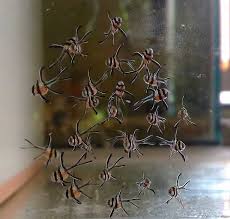
In the realm of sustainable agriculture, marigold flowers emerge as versatile allies, offering natural solutions for promoting soil health, pest management, and biodiversity conservation. With their resilience, pest-repellent properties, and soil-enriching capabilities, marigolds play a pivotal role in sustainable farming systems that prioritize ecological integrity, community well-being, and long-term resilience. Let’s explore the diverse array of sustainable farming practices that incorporate marigolds, fostering regenerative agriculture and cultivating a healthier, more resilient food system for the future.
**1. Agroecology: Embracing Nature’s Wisdom**
Agroecology is a holistic approach to farming that seeks to mimic natural ecosystems, promote biodiversity, and enhance soil health through ecological principles and practices. Marigolds are integral components of agroecological farming systems, where they serve as companion plants, cover crops, and biopesticides that support crop growth, soil fertility, and pest management. By integrating marigolds into crop rotations, polycultures, and agroforestry systems, farmers can enhance ecosystem resilience, reduce dependency on synthetic inputs, and cultivate thriving, biodiverse landscapes that sustainably produce food and fiber.
**2. Organic Farming: Nurturing Soil Health**
Organic farming prioritizes soil health, biodiversity conservation, and ecological balance through the use of natural inputs and farming practices that minimize environmental impact and promote long-term sustainability. Marigolds are valued companions in organic farming systems, where they contribute to pest control, soil fertility, and weed suppression without the use of synthetic chemicals. By planting marigolds as trap crops, border plants, and green manures, organic farmers can reduce pest pressure, improve soil structure, and enhance nutrient cycling, fostering healthy, resilient soils that support robust crop growth and yield.
**3. Permaculture: Designing Regenerative Systems**
Permaculture is a design approach that seeks to create self-sustaining, regenerative systems that mimic natural patterns and processes, maximizing resource efficiency and minimizing waste. Marigolds are key players in permaculture gardens and food forests, where they fulfill multiple functions as dynamic accumulators, nutrient fixers, and beneficial insect attractants. By incorporating marigolds into polycultural plantings, guilds, and stacked functions, permaculture practitioners can enhance biodiversity, improve soil fertility, and create resilient ecosystems that provide food, medicine, and habitat for people and wildlife alike.
**4. No-Till Farming: Preserving Soil Structure**
No-till farming is a conservation agriculture practice that minimizes soil disturbance and erosion by eliminating or reducing tillage operations, thereby preserving soil structure, moisture retention, and organic matter content. Marigolds are valuable cover crops in no-till systems, where they protect soil surfaces, suppress weeds, and enhance soil biology without the need for plowing or cultivation. By planting marigolds as living mulches, green manures, and companion plants, no-till farmers can improve soil health, increase water infiltration, and reduce soil erosion, fostering resilient farming systems that conserve soil resources and mitigate climate change.
**5. Regenerative Grazing: Enhancing Pasture Health**
Regenerative grazing is a holistic management approach that restores grasslands, improves soil health, and promotes carbon sequestration through rotational grazing practices that mimic natural herbivore behavior. Marigolds can be integrated into pasture systems as forage crops for livestock or as companion plants that attract beneficial insects and repel pests. By incorporating marigolds into rotational grazing paddocks, regenerative graziers can improve pasture diversity, reduce parasite load in livestock, and enhance soil fertility, contributing to the regeneration of degraded landscapes and the restoration of ecosystem function.
**6. Community Supported Agriculture (CSA): Fostering Food Sovereignty**
Community Supported Agriculture (CSA) is a direct marketing model that connects consumers with local farmers, fostering community engagement, food sovereignty, and agricultural resilience. Marigolds are valued crops in CSA operations, where they provide beauty, biodiversity, and pest management services while supporting the financial viability of small-scale farms. By including marigolds in CSA produce boxes, farm stands, and pick-your-own fields, farmers can educate consumers about the ecological benefits of marigolds and promote sustainable farming practices that prioritize environmental stewardship and community well-being.
In conclusion, marigolds are versatile allies in the quest for sustainable farming practices that promote soil health, biodiversity conservation, and ecological resilience. By integrating marigolds into diverse farming systems and agricultural landscapes, farmers can enhance ecosystem services, reduce environmental impact, and cultivate thriving, resilient food systems that nourish both people and planet. As we embrace the wisdom of marigolds and incorporate them into sustainable farming practices, we sow the seeds of a healthier, more resilient agricultural future for generations to come.









